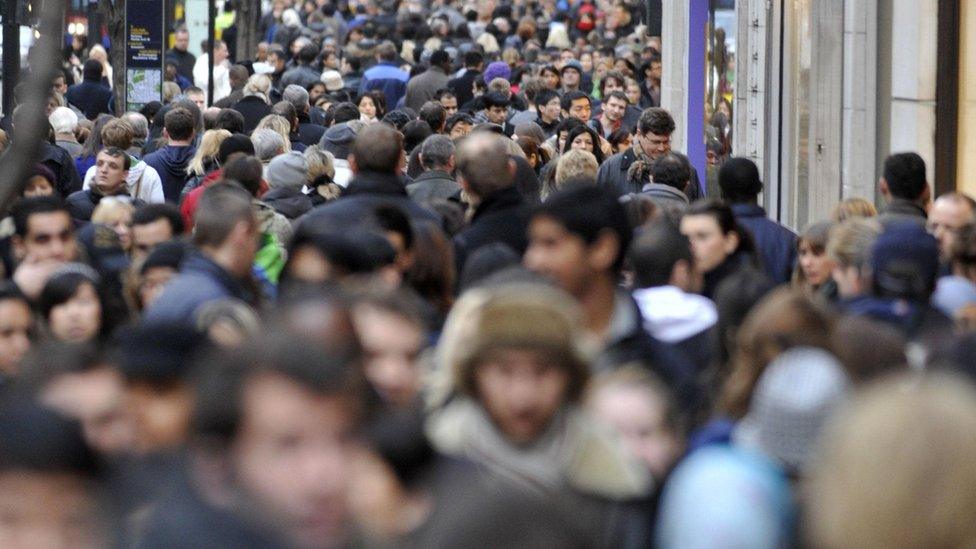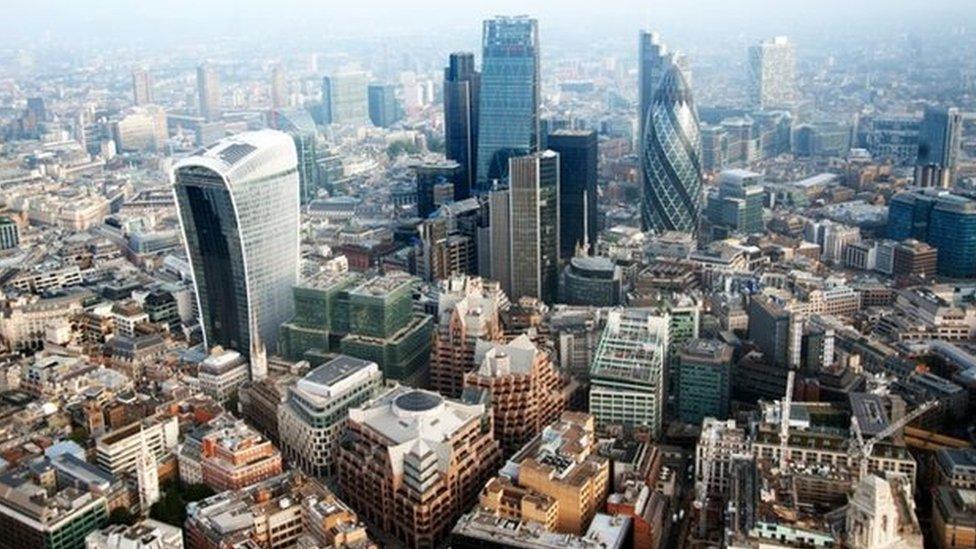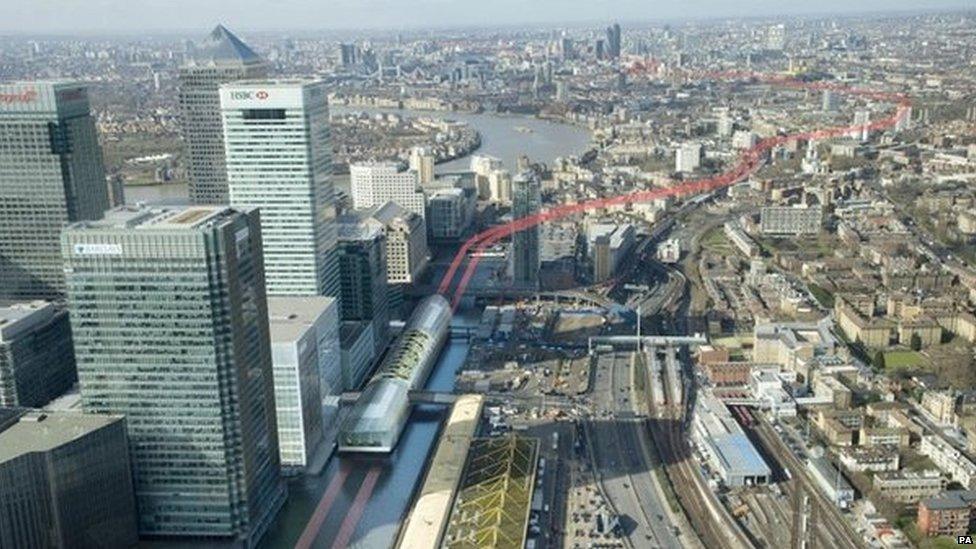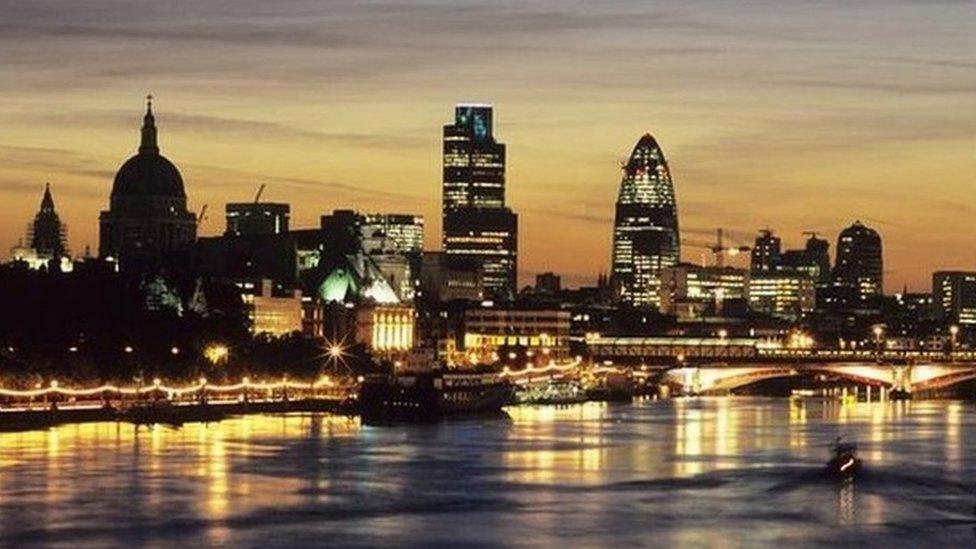Is the vision for London's transport radical enough?
- Published
- comments

The Government is to withdraw £2.8bn from Transport for London's operational budget by 2018/19
You can sum up the challenges facing London transport long-term broadly as population growth and money.
How does London pay for more infrastructure as funding shrinks and the population grows?
The predictions are that London will have a population of 10 million by 2030. That puts immense pressure on transport.
What is interesting in this mayoral election is there is now a broad political consensus around the need for investment in transport - but budgets are shrinking.
Transport for London's (TfL) operational budget will be non-subsidised by 2018/19 as the Government withdraws £2.8bn.
Stephen Joseph at the Campaign for Better Transport says: "I think the big challenges facing transport in London are really about money and how to deal with growth - both the population and the economy and those are big challenges in relation to transport.

London now has a population of around 8.6m, the highest since the start of World War Two
"TfL is losing its grant from the government by 2018/19 so it will have to survive on what it earns and on capital funding and that will have challenges around fares and then there is also the issue of how it manages burgeoning population growth and the economy.
'Innovation needed'
"I think it is quite clear that whoever gets in in May the direction of travel is about more public transport and managing traffic in various ways but connecting development sites with better public transport."
So innovation and change will be needed in the funding. Multiple funding streams are more likely now with less reliance on the public purse.
Colin Stanbridge at the London Chamber of Commerce says: "I think the mayor is going to have to show great innovation and TfL's going to have to show great innovation when it comes to trying to raise the money.
"I think that we all accept now that going to government and saying we need billions and billions over and over again is not going to work.
"What the government needs to do is to give the mayor the freedoms and the power to be able to raise that money. The London Finance Commission came up with a very interesting idea - which the Chamber supported - about raising money from property taxes from council tax - from business rates.
"Well, we need something along those lines if the mayor's going to be able to raise that money. What we really need to protect is the investment."

Transport pressures are set to increase with the mayor suggesting more Crossrail projects may be needed
And there are some elephants in the room. Most notably around traffic and congestion.
If the economy grows as does the population, then how will the finite number of roads cope?
Radical enough?
It's politically unpalatable but will road charging across London eventually be considered by the next mayor?
Could introducing a workplace parking bay levy fly?
These are early days but we are seeing signs of these policies emerging.
London is arguably the home of transport innovation. The first urban underground railway was here, along with the congestion charge zone, the Oyster card and contactless payments.
Now, we are seeing long segregated cycle lanes. But what is next? Some are disappointed at the limited number of the radical ideas.

Rachel Holdsworth from Londonist.com says what is sadly lacking in the two front runners manifestos is 'big ambition'
Rachel Holdsworth at Londonist.com, external says: "I think innovation is crucial and what is actually sadly lacking in the two front runners manifestos is a big picture, a big ambition of how they want London to be in the next 30 or 40 years.
"I don't get a big vision from them. They are promising things that are already in the pipeline such as Crossrail 2 and the Bakerloo line extension. There does not seem to be an acknowledgement that maybe we are at peak car right now so why are we carrying on building road tunnels?
"Shouldn't we be doing river crossings that are for public transport? Shouldn't we be focusing more on moving people rather than vehicles? Shouldn't we be focusing more on cycling?"
Whoever gets elected the challenges in transport are big. Keeping London moving costs billions and budgets are being squeezed.
And, as more people move here, the challenges and the decisions become more acute.
- Published25 November 2015
- Published11 February 2016
- Published30 March 2016